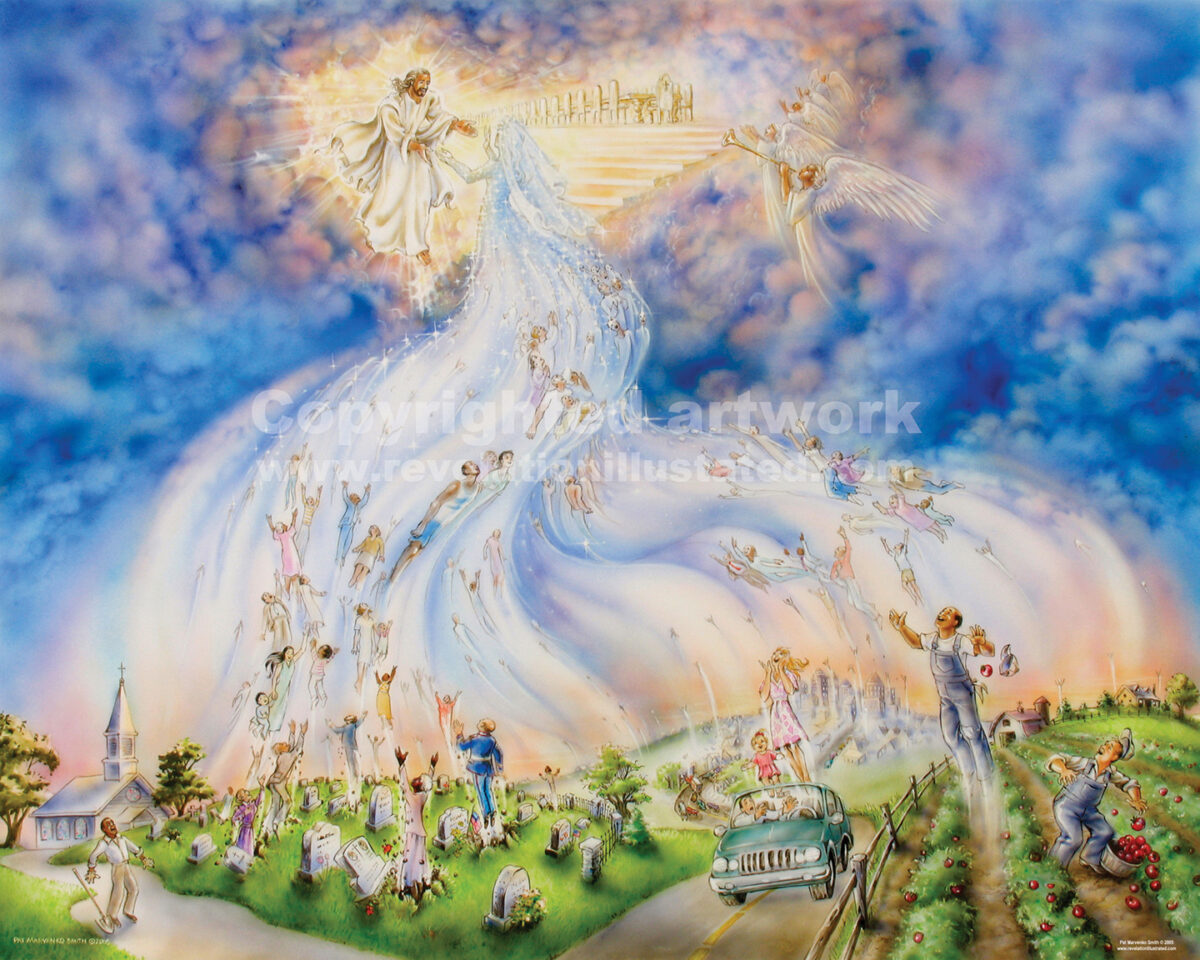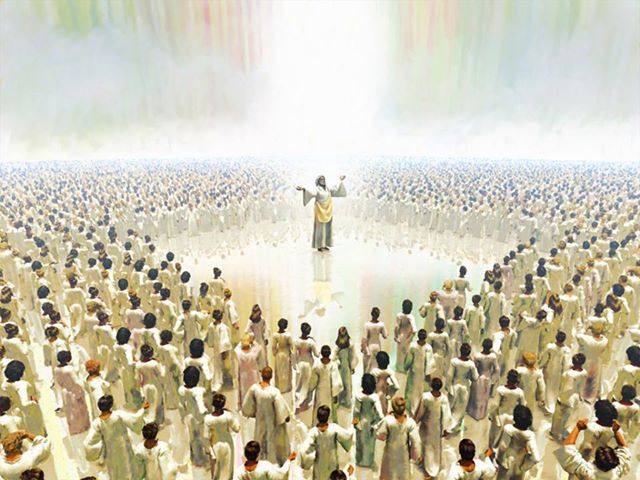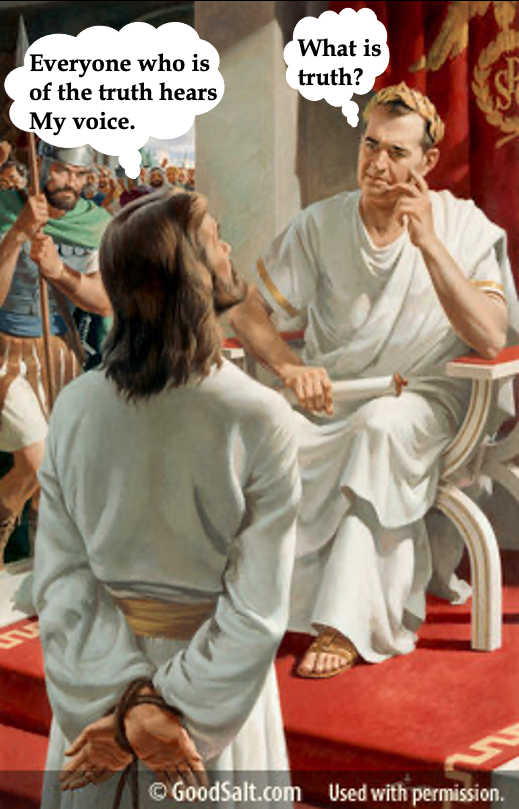“18 For I testify to everyone who hears the words of the prophecy of this book: If anyone adds to these things, God may add to him the plagues that are written in this book: 19 and if anyone takes away from the words of the book of this prophecy, God may take away his part from the tree of life, from the holy city, and from the things which are written in this book.” Revelation 22:18-19
After the Lord Jesus offered eternal life freely to those who thirst for it (22:17), the exalted Lord Jesus Christ 1 offers a stern warning to anyone who wants to add or subtract from the book of Revelation, “For I testify to everyone who hears the words of the prophecy of this book: If anyone adds to these things, God may add to him the plagues that are written in this book.” (Revelation 22:18). Christ is warning “everyone,” saved or unsaved, who “hears the words of the prophecy of this book.” The word “everyone” includes the seven churches of Asia Minor (Revelation 2-3) and all churches to the present. It also includes any non-Christians who are exposed to the message of the book of Revelation since the time of its writing. This would include copyists, translators, and teachers of the book who intentionally distort or pervert the written message of the book of Revelation. 2
“He is not concerned about possible mechanical errors in transmission or mistakes of judgment in interpreting his message, but in deliberate distortions and perversions of it.” 3
God does not want anyone to alter or distort the final book of the Bible because its message is vitally important to future generations. This warning from the Lord Jesus has two parts: first He warns against adding to the book of Revelation. Anyone who does this Christ warns, “God may add to him the plagues that are written in this book.” The majority of Greek manuscripts include “God may add to him…” instead of “God will add to him…”
Second, the Lord warns against subtracting from the book of Revelation: “If anyone takes away from the words of the book of this prophecy, God may take away his part from the tree of life, from the holy city, and from the things which are written in this book.” The majority of Greek manuscripts include “God may take away…” instead of “God will take away…”
Vacendak explains, “This is not so much a prediction as it is an imprecation (a wish of judgment and difficulty on another). This is an expression of holy desire that the seriousness of these acts be met with severe divine judgment. John is not making an exact prediction about what will happen to people who add or subtract from the Book of Revelation; the imprecations express judgments John believes such people deserve. He wants the retribution to be commensurate with the guilt. Throughout history, God has sent plagues on people who were disobedient to Him that resemble the plagues of the Tribulation (e.g., the plagues of Egypt). And as He sees fit, He can still bring similar troubles, diseases, and so forth, on those who deliberately revise Scripture today. He can ‘add to’ and ‘take away’ from them as He desires (including eternal rewards like the tree of life).” 4
For example, in the context, one of the most important truths in the book of Revelation is that eternal life (“the water of life”) is “freely” offered by Jesus Christ to whoever “thirsts” for it (22:17; cf. 21:6). Jesus is warning that anyone – saved or unsaved – who “adds” to this by saying eternal life is freely offered by Jesus and other religions such as Islam, Hinduism, Mormonism, Jehovah Witnesses, etc., may be subject to the plagues found in the book of Revelation. Nowhere does the book of Revelation (nor the rest of the Bible) say that eternal life can be freely received outside of Jesus Christ.
For the believer who adds to this truth, this could mean they will have more troubles, diseases, and other calamities mentioned in the book. For the non-believer, in addition to receiving the aforementioned temporal plagues is a far worse eternal plague – greater punishment in the lake of fire forever (20:11-15). Since they led people away from faith alone in Jesus Christ alone for eternal life, they will receive greater condemnation in the lake of fire (cf. Matthew 10:15; 23:14; Mark 12:40; 2 Peter 2:1-17; Jude 1:1-13).
For the believer who “takes away” from Jesus’ free offer of eternal life by removing the word “freely” and then saying eternal life must be earned by good works or faith plus good works, that believer will have eternal rewards taken away from him or her such as access to the “tree of life” (22:19; cf. 2:7), the loss of special honor and privileges in the “holy city” (New Jerusalem), or the loss of other “things” (rewards) mentioned in the book of Revelation (22:19) such as wearing special white garments (3:4-5), ruling with Christ (2:26-27; 3:21), eating hidden manna (2:17), receiving a white stone engraved with your own special name that only the Lord and you will know (2:17), and receiving a special entrance into the New Jerusalem (22:14).
For the unbeliever who takes away from the book of Revelation, he or she will have no “part” of anything on the new earth because they will be confined forever to the lake of fire (20:11-15). His or her degree of punishment in the lake of fire will be greater than those nonbelievers who did not take away from this book.
Walvoord writes, “How great will be the judgment of those who despise this book and relegate it to the mystical experiences of an old man, thereby denying that it is the inspired Word of God. Rejecting the Word of God is rejecting God Himself. And those who deny His promises of blessing and subtract from His truths will receive His judgment.” 5
Chuck Swindoll describes some subtle ways a believer could “add” or “take away” from the prophetic words of the book of Revelation:
“Disobeying – willfully rebelling against clear commands of Scripture
“Disregarding – intentionally ignoring what is written
“Distorting – purposely twisting the true meaning of God’s Word to accommodate our opinions
“Diluting – adding other traditions, texts, or teachers as authoritative ‘truth’” 6
“Some well-meaning theologians argue that certain versions or paraphrases of the Bible violate the parameters given in Revelation 22:18-19. Still others argue that accidental errors made by well-meaning students of Scriptures constitute ‘adding to’ or ‘taking from’ God’s Word. Correctly handling Holy Scripture is vital to the health of the church, but the warning of 22:18 addresses those who would intentionally, maliciously, and deceptively disobey, disregard, distort, or dilute God’s authoritative Word. We keep the words of God by hearing them, accepting them, internalizing them, and applying them to our daily lives.” 7
All of us – Christian or non-Christian – can be guilty of adding or taking away from the book of Revelation. May God increase our sensitivity to Him and grant us humility to place ourselves under His authoritative Word. Instead of us changing His Word, may His Word change us to be more like His Son.
Prayer: Lord Jesus, thank You for preserving Your Word which is truth. When You warned us not to add or take away from the words of the book of Revelation, we are reminded that Your Word is unchangeable and unchanging. May each of us approach Your Word with humility and openness to let Your Word change us instead of us trying to change Your Word. Please enable us to know Your Word so well that we are not deceived by those who deliberately alter Your Word to mislead people away from freely receiving eternal life by believing in You. In Your precious name we pray, Lord Jesus. Amen.
ENDNOTES:
1. Tom Constable, Notes on Revelation, 2017 Edition, pg. 257. Evidence for Jesus speaking here includes the preceding context (22:16) and especially verse 20: “He who testifies to these things says, ‘Surely I am coming quickly.” (22:20). Those who think the apostle John is speaking here include Bob Vacendak; Robert Wilkin; J. Bond; Gary Derickson; Brad Doskocil; Zane Hodges; Dwight Hunt; Shawn Leach; The Grace New Testament Commentary: Revised Edition (Grace Evangelical Society, Kindle Edition, 2019), pg. 1591; Charles Swindoll, Insights on Revelation (Swindoll’s Living Insights New Testament Commentary Book 15, Tyndale House Publishers, Inc., 2014 Kindle Edition), pg. 403; Tony Evans, CSB Bible by Holman, The Tony Evans Study Commentary (B & H Publishing Group, Kindle Edition 2019), pg. 2425.
2. Constable, pg. 257.
3. Ibid., cites George Eldon Ladd, A Commentary on the Revelation of John, 1972 reprint ed. (Grand Rapids: Wm. B. Eerdmans Publishing C., 1985), pg. 295; cf. Henry Barclay Swete, The Apocalypse of St. John, 2nd ed. (London: Macmillan and Co., Ltd., 1907), pg. 313.
4. Vacendak, pg. 1591.
5. John F. Walvoord, The Bible Knowledge Commentary Epistles and Prophecy, Editors John F. Walvoord and Roy B. Zuck (David C. Cook, 2018 Kindle Edition), Kindle Location 6701.
6. Swindoll, pg. 403.
7. Ibid., pp. 403-404.





